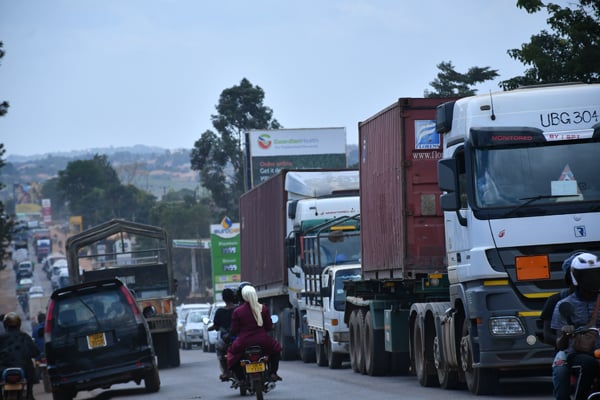Prime
Rising costs prompt refugees to ask UN for 100% food aid

UN Resident Coordinator Suzan Ngongi (2nd left), being briefed about food situation at Bidibidi settlement at the weekend. PHOTO / FELIX WAROM OKELLO.
What you need to know:
- WFP recently cut the food rations by 30 percent due to inadequate funds and some of the food items such as the vegetable oil have been replaced with cash.
South Sudan refugees in Bidibidi and Imvepi settlements in Yumbe and Terego districts have asked the World Food Programme (WFP) to restore the 100 percent provision of food because of the high cost of living.
WFP recently cut the food rations by 30 percent due to inadequate funds and some of the food items such as the vegetable oil have been replaced with cash.
The refugees tabled the matter before the UN Resident Coordinator, Ms Susan Ngongi, during her one-week tour of different sites to assess the progress of UN projects in the various resettlements.
Mr Emmanuel Alio, a refugee in Zone One settlement, said persons with special needs cannot afford to complement on the little food rations.
“We used to get 14kg of maize grain but WFP kept on cutting the food rations and right now we are receiving about 8kg per person. We have settled in a rocky land which can’t favour agriculture to supplement on what WFP gives,” he says.
Another refugee, Ms Esther Lokudu, said food scarcity may make some of them plunge into hunger.
“WFP has stopped giving us vegetable oil and has replaced it with cash of Shs5,000. This money is not enough because the prices of commodities have gone high and the money can’t do anything,” she said.
Over time, several humanitarian organisations have been training, providing seedlings and start-up tools for the refugees to carry out both subsistence and commercial farming in order to be self-reliant.
As a result, some refugees are now renting land from the local communities for farming.
The refugees are also engaged in agriculture and market support, supply chain, food systems and nutrition.
While responding to the concerns of the refugees, Mr Cyridion Usengumuremyi, the Head of WFP in Arua District, told Daily Monitor that the settlements in West Nile and Acholi sub-regions are receiving 70 percent and 60 percent food rations respectively, due to funding challenges.
He said concerning vegetable oil, they are not giving it to the refugees this month but they have replaced it with cash.
“We don’t have vegetable oil in our pipeline this month. There has been some issues which has made us not to have vegetable oil this month. It will not continue this way, vegetable oil will come back,’’ he said. Ms Ngongi said the issue of funds has greatly affected WFP.
“In Bidibidi settlement, my understanding is the food ration has reduced to 70 percent but we are trying to advocate for more funds,” she said.
DON'T MISS: Allocate more funds to refugee-hosting areas
She added: “As we look for more funds, it’s also much important to know how to use the available funds we have. There is a lot of emphasis in meetings about livelihood opportunities on how to help people make their own money.”




